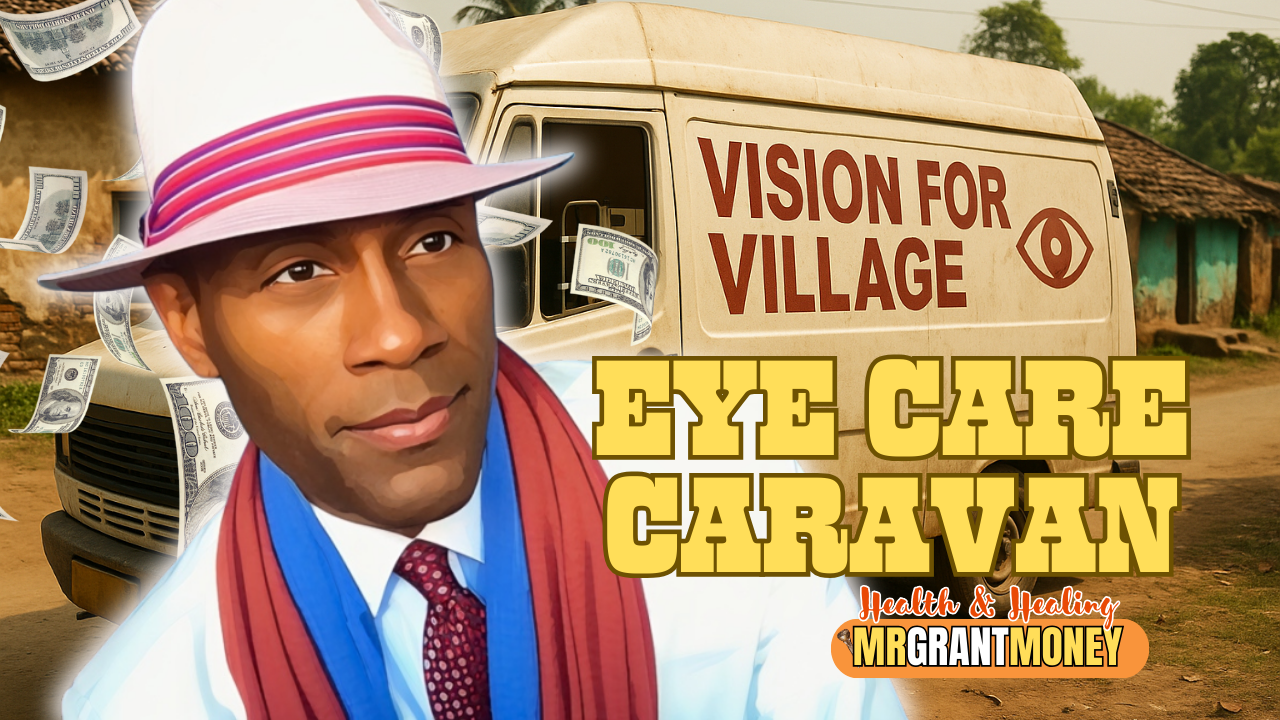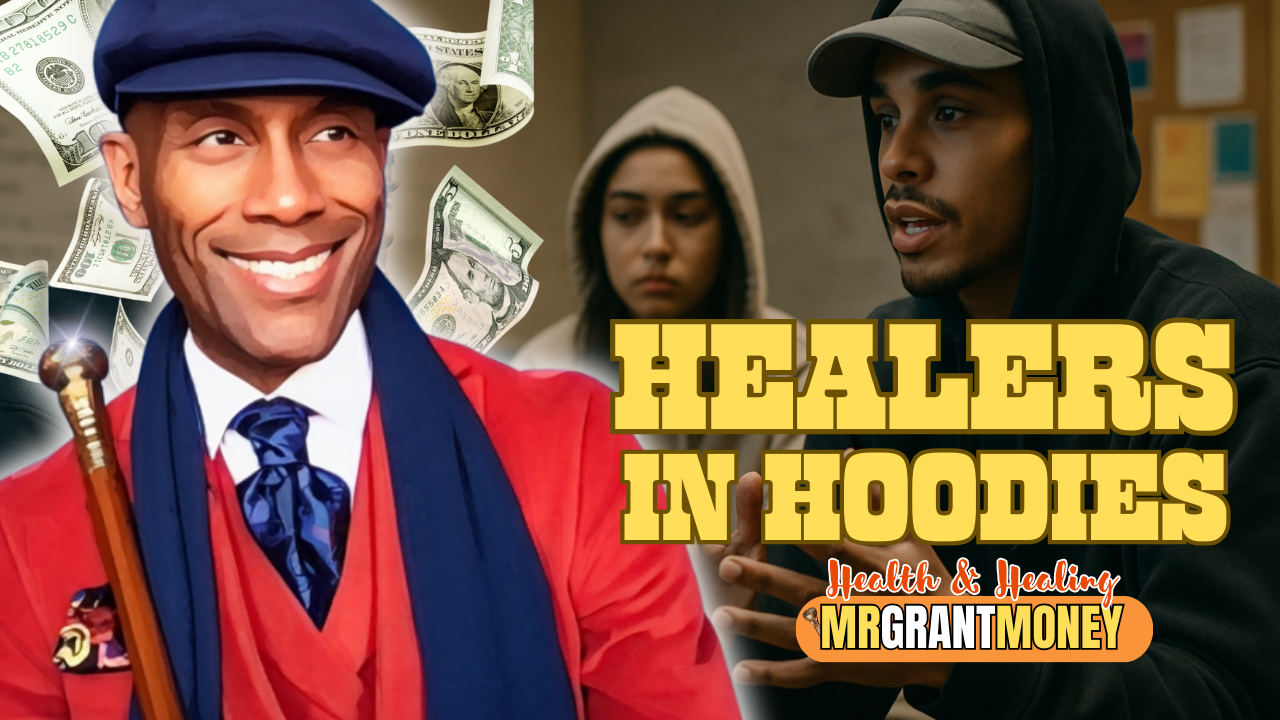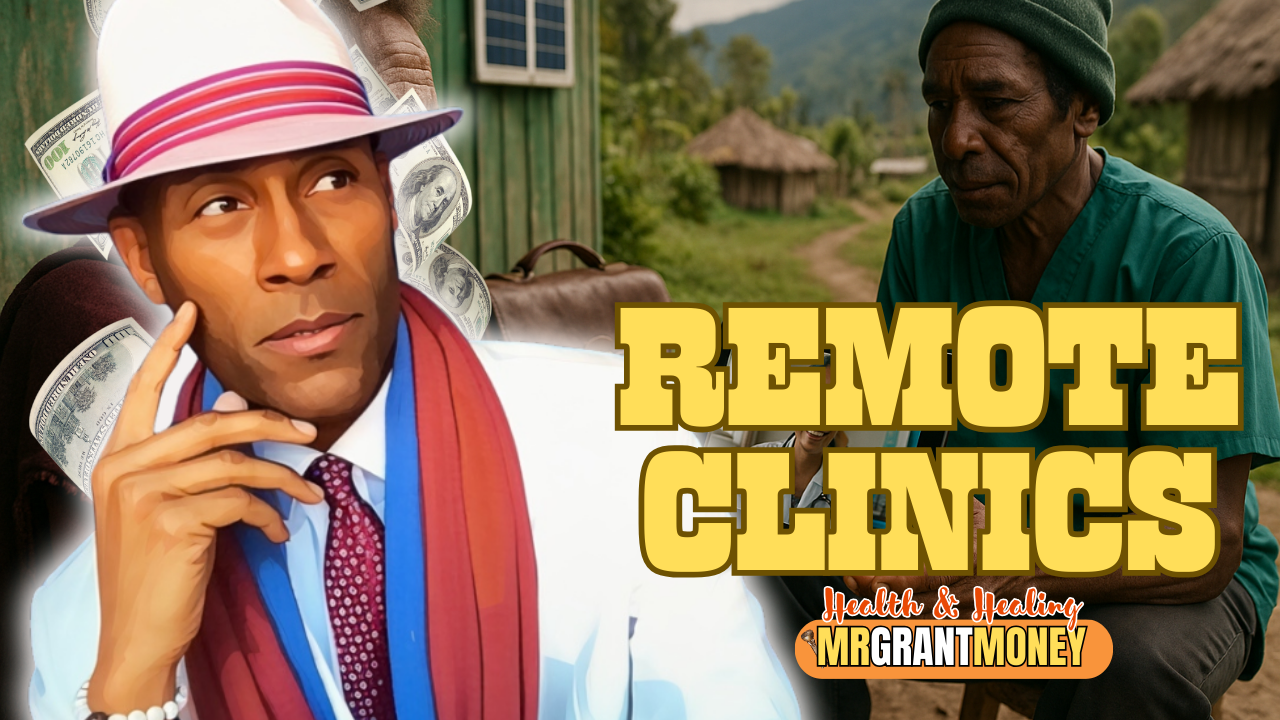The Youth Entrepreneurship Fund: Mr. Grant Money & The Teen CEO

Monday, May 5 – Kingston, Jamaica 🇯🇲
He didn’t call himself a founder. He was already doing the work. All he needed was funding that matched his grind.
The Hustle Wasn’t Hypothetical
You ever meet a teenager moving like a CEO?
Not the kind who posts about “grind culture” and quotes Gary Vee in a school presentation. The real kind. The kind who’s up before dawn checking last night’s orders. Who answers customer DMs in between chemistry and economics. Who sketches out inventory projections in the back of a composition book because business software is expensive, and the library computer logs you out after thirty minutes.
That was Zayn.
At sixteen, he was running a legit streetwear brand from his uncle’s verandah in Kingston. The clothes weren’t copycats—they were bold, original designs rooted in Jamaican pride and wrapped in global ambition. Each drop sold out in days. He handled everything himself—product design, marketing, order fulfillment, customer service.
And he wasn’t playing.
He hired two friends, trained them, paid them fairly. He reinvested every dollar. He studied brands he admired. Watched tutorials on SEO, financial literacy, brand strategy, and supply chain logistics during lunch. While most teen entrepreneurs were chasing likes, Zayn was chasing legacy.
But the hustle, as real as it was, had limits.
The Systems That Celebrate Stories but Don’t Fund Them
Zayn had everything investors say they love—proof of concept, traction, market understanding, and leadership. What he didn’t have was access. The big youth entrepreneurship programs wanted polished pitch decks and business plans in PDF format. They wanted buzzwords. Projections. Slide templates.
Zayn had no coach, no incubator, and no startup capital. Just receipts.
He applied to contests and never heard back. He asked questions in networking groups and got condescended to. He knew what he was building. But the gatekeepers couldn’t see it, or maybe they just weren’t looking.
Most programs are built for youth who already speak the language of capital—not the ones inventing their own out of necessity.
So he kept grinding. Quietly. Consistently.
Until the day of the Kingston Youth Business Expo.
The Day It Shifted
It wasn’t a fancy event. Plastic chairs, a few vendor tables, a mic that cut in and out. Zayn set up his booth with a suitcase of shirts, a handwritten sign, and a stack of order screenshots.
No gimmicks. Just product, purpose, and pride.
“I’m not trying to impress you,” he told the room during his short presentation. “I’m trying to build something that lasts. I’m already in business. I’m here because I need help to grow.”
That’s when he caught the attention of one man in the back row. Not clapping, not filming—just listening. Closely.
And when the session ended, he approached Zayn, handed him a card with embossed letters and no logo.
The Meeting That Changed Everything
They met the next afternoon at a café tucked between a used bookstore and a repair shop.
Mr. Grant Money was already there. A pale linen suit. No tie. A leather folio that looked older than Zayn. He sipped his coffee and let Zayn talk. About the orders, the designs, the budget breakdowns, the stress of running payroll with a school schedule.
Then he nodded.
“You don’t need investors,” he said. “Not yet. What you need is non-dilutive capital. Money that respects the fact that you’ve already built something. A grant, not a loan. A system designed to support youth like you—not conditionally, but structurally.”
He laid out the path: a Youth Entrepreneurship Fund operated by a Caribbean development initiative. It was designed for young founders under 25 who had proof of concept but lacked capital, legal structure, or formal networks. The grant offered $25,000 in startup funding, technical support, and access to mentors and training resources.
And it didn’t require equity. Just accountability.
What Most Young Entrepreneurs Don’t Know About Grants
Zayn had never heard of the fund. Most young entrepreneurs haven’t.
Because programs like this often get buried—inside government websites, behind jargon-heavy applications, or behind registration processes too opaque for someone without guidance.
And most youth without access to insider networks never even know what to search for.
That’s where Mr. Grant Money came in.
He helped Zayn break it all down. They reworked his budget in Google Sheets. Drafted a simple business plan tied to measurable economic outcomes. Framed his goals around job creation, digital skills development, and youth economic empowerment—keywords that resonated with grant acquisition reviewers.
He introduced Zayn to a Kingston-based nonprofit that could serve as fiscal sponsor—making the grant legally accessible even though Zayn didn’t yet have a registered entity.
He didn’t just get him the money. He made sure Zayn was ready to own it.
The Grant Hit. So Did the Growth.
Once the funding came through, everything changed.
Zayn upgraded his production. Built a clean, responsive e-commerce site. Purchased better materials, streamlined fulfillment, and launched a mentorship program to help other teens start side hustles. He hired two more young people and trained them not just in operations—but in business and financial literacy.
He started hosting pop-up events in local community centers. Partnered with artists. Experimented with limited runs that sold out faster than he could post them. His brand gained a following not just for its style—but for its story.
By the end of the year, he was invited to speak at a regional entrepreneurship summit. Not as a student. As a case study.
And through it all, he stayed grounded. Still designing. Still hustling. But now with leverage, with support, and with options.
He Didn’t Need a Handout. He Needed a Door.
Zayn didn’t get lucky. He got seen. And that made all the difference.
Mr. Grant Money didn’t hand him success. He handed him a map—and walked beside him while he read it. He didn’t tell Zayn to change his vision. He helped him translate it in a way that funders could finally hear.
Because real youth hustle isn’t lacking in brilliance. It’s lacking in access.
And when that access is granted? The results speak for themselves.
Zayn didn’t just break the cycle.
He redesigned it.
And he’s not finished yet.
🧠 Discussion Questions
-
Why are youth entrepreneurs like Zayn often overlooked by traditional funding channels, even when they have traction and proven demand?
-
What is the difference between non-dilutive funding (like grants) and investor capital, and why might grants be a better fit for early-stage youth businesses?
-
How can regional development funds or youth-specific grants be made more accessible to entrepreneurs who don’t have formal training or legal structures?
-
What role should mentorship and fiscal sponsorship play in helping young founders secure capital and manage growth responsibly?
-
Why is it important to recognize informal, grassroots entrepreneurship as worthy of investment—and what systems need to change to support that?
📚 More Resources & Related Topics
🔎 Learn More by Topic
📌 Philanthropy Blog 📌 Grant Acquisition Blog 📌 Entrepreneurship Blog 📌 Financial Literacy Blog 📌 Scholarship Blog
📅 Seasonal & Inspirational Stories
📌 Thankfulness Stories 📌 Holiday Stories 📌 New Year Stories 📌 Halloween Stories 📌 Valentine’s Stories
🛍️ Shop, Stream, Connect
📌 Mr. Grant Money Store 📌 Mr. Grant Money Music 📌 YouTube Channel
💼 Professional Tools & Networks
📌 Grant Central USA 📌 Grant Writers Association
🔓 UNLOCK EXCLUSIVE TIPS WITH MR. GRANT MONEY!
We hate SPAM. We will never sell your information, for any reason.

















